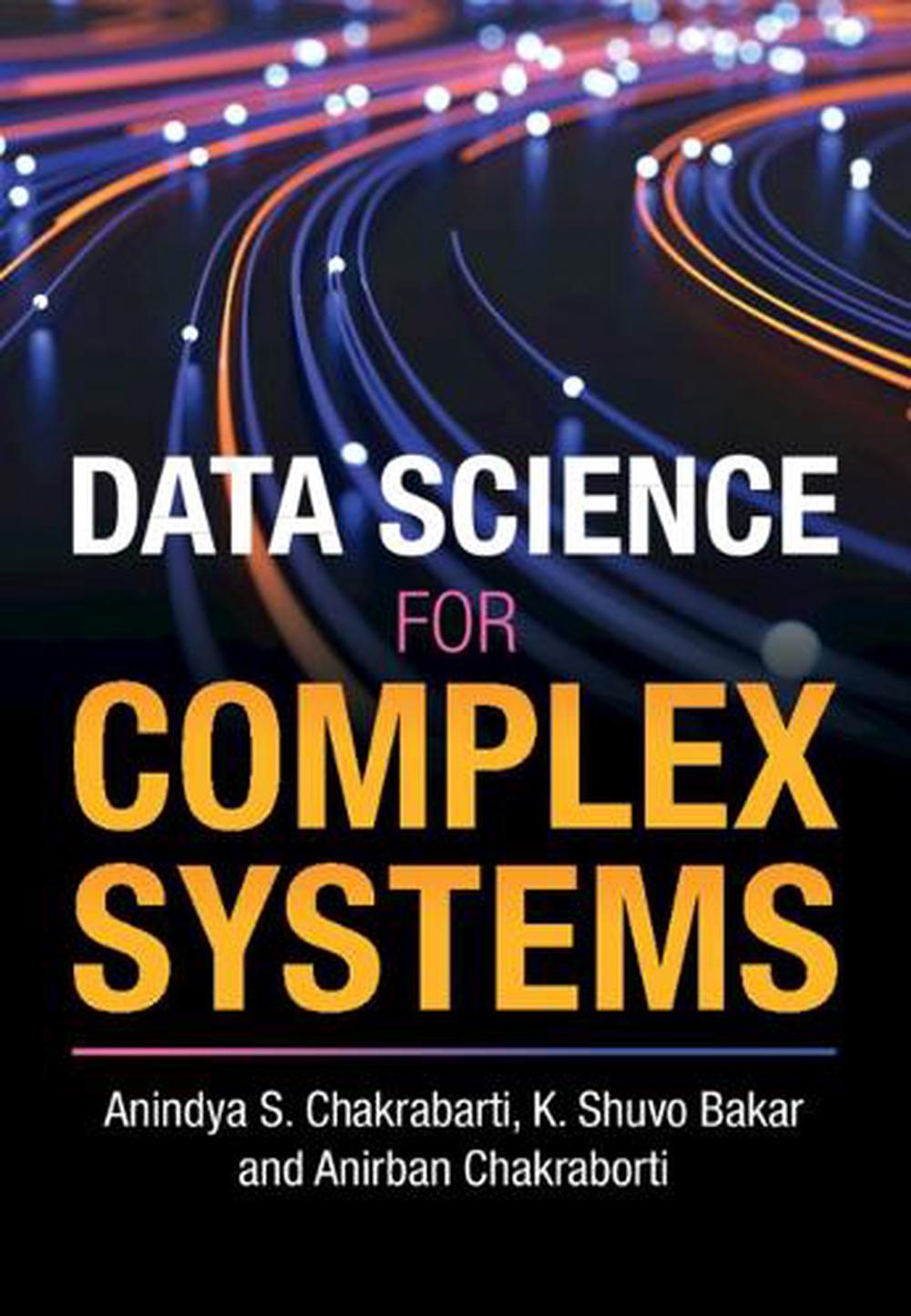
When you click on links to various merchants on this site and make a purchase, this can result in this site earning a commission. Affiliate programs and affiliations include, but are not limited to, the eBay Partner Network.
Data Science for Complex Systems by Anindya S. Chakrabarti (English) Hardcover B

- Item No : 135661685593
- Condition : Brand New
- Brand : No brand Info
- Seller : the_nile
- Current Bid : US $122.12
-
* Item Description
-
The Nile on eBay

Data Science for Complex Systems
by Anindya S. Chakrabarti, K. Shuvo Bakar, Anirban Chakraborti
This book provides an accessible guide to the tools and techniques of data science that can be utilised for the analysis of complex systems. This text is an invaluable resource for scientists, engineers and social scientists who require effective analysis of large quantities of data.
FORMAT
HardcoverLANGUAGE
EnglishCONDITION
Brand New
Publisher Description
Many real-life systems are dynamic, evolving, and intertwined. Examples of such systems displaying 'complexity', can be found in a wide variety of contexts ranging from economics to biology, to the environmental and physical sciences. The study of complex systems involves analysis and interpretation of vast quantities of data, which necessitates the application of many classical and modern tools and techniques from statistics, network science, machine learning, and agent-based modelling. Drawing from the latest research, this self-contained and pedagogical text describes some of the most important and widely used methods, emphasising both empirical and theoretical approaches. More broadly, this book provides an accessible guide to a data-driven toolkit for scientists, engineers, and social scientists who require effective analysis of large quantities of data, whether that be related to social networks, financial markets, economies or other types of complex systems.
Author Biography
Anindya S. Chakrabarti is an Associate Professor of Economics and UTI Chair of Macroeconomics at the Indian Institute of Management Ahmedabad. His main research interests are macroeconomics, big data in economics, time series econometrics, network theory and complex systems. K. Shuvo Bakar is Senior Lecturer at the University of Sydney. His research interests are Bayesian modelling and computation to reduce uncertainty in inferential statements. He works on statistical machine learning methods and applications to real-life data-driven problems. Anirban Chakraborti is Dean of Research at the School of Engineering and Technology at BML Munjal University, India. His main research interests lie in the areas of econophysics, data science, quantum physics and nanomaterial science.
Table of Contents
Preface; Part I. Introduction: 1. Facets of complex systems; Part II. Heterogeneity and Dependence: 2. Quantifying heterogeneity: Classical and Bayesian statistics; 3. Statistical analyses of time-varying phenomena; Part III. Patterns and Interlinkages: 4. Pattern recognition in complex systems: machine learning; 5. Interlinkages and heterogeneity: network theory. Part IV. Emergence: from Micros to Macro: 6. Interaction and emergence: agent-based models; 7. Epilogue; References; Index.
Review
'Complex systems are a subject of popular interest thanks to the efforts of both academics and industry researchers during the last few years, and the 2021 Nobel Prize in Physics. This book is timely and it gives a comprehensive view of complex systems with an emphasis on data-driven contributions, ranging from economic and financial aspects to broader social science applications. Reading this book is a pleasure, and it provides a solid and robust understanding of the key topics in the field. This is a 'must -read for anybody interested in complex systems' and I strongly recommend having it on your shelf!' Tiziana Di Matteo, King's College London, Complexity Science Hub Vienna, and Enrico Fermi Research Centre (CREF)
Promotional
This book provides a guide to the analysis of complex systems through the lens of data science.
Promotional "Headline"
This book provides a guide to the analysis of complex systems through the lens of data science.
Details
ISBN1108844790Author Anirban ChakrabortiPublisher Cambridge University PressLanguage EnglishYear 2023ISBN-10 1108844790ISBN-13 9781108844796Format HardcoverPages 289Imprint Cambridge University PressPlace of Publication CambridgeCountry of Publication United KingdomIllustrations Worked examples or ExercisesAU Release Date 2023-05-25NZ Release Date 2023-05-25Publication Date 2023-05-25UK Release Date 2023-05-25Alternative 9781108953597DEWEY 006.312Audience Professional & Vocational


-
- NO GRID Survival Projects
- $ 37.00
















